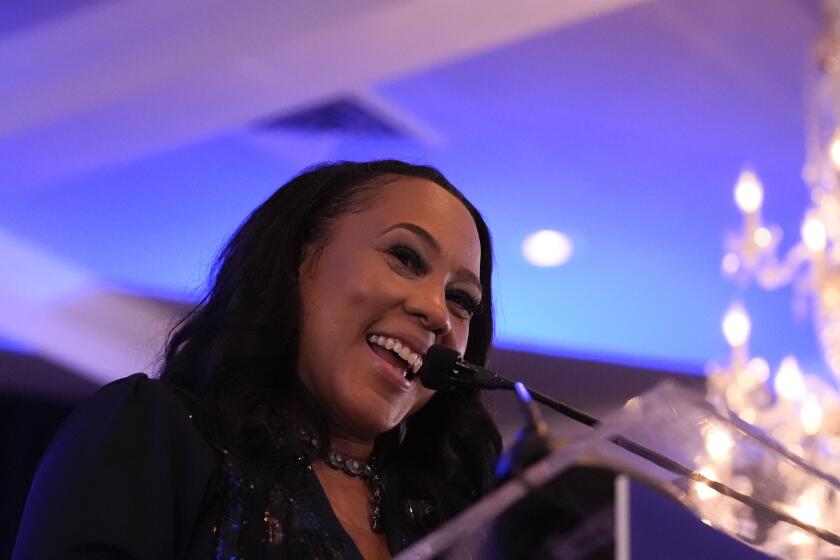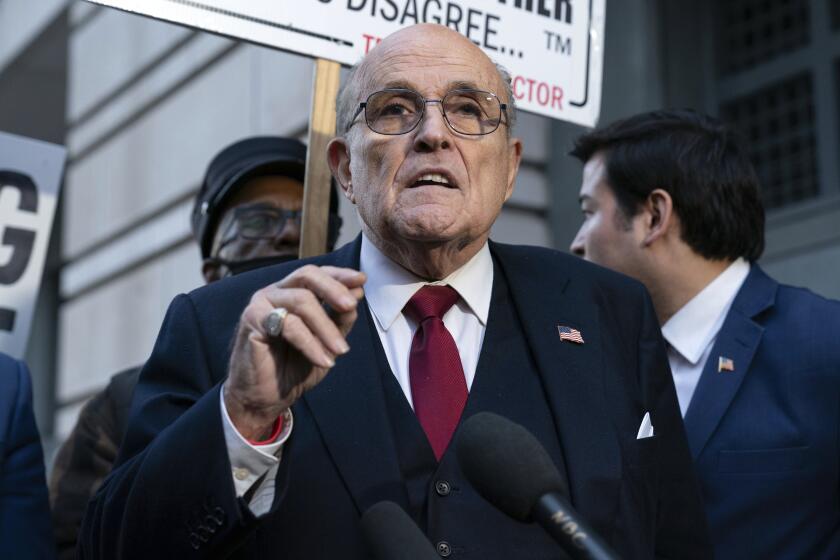Governors on the stimulus: Supersize it
To help offset state budget cuts, a group of Democratic governors urged the federal government Friday to pass a trillion-dollar economic stimulus package, significantly larger than the one under discussion in Congress.
The package would help states compensate for cuts to education spending, as well as bolster infrastructure projects and benefits programs for the poor, said the governors from New York, New Jersey, Massachusetts, Ohio and Wisconsin in a news conference held by phone.
The governors said $1 trillion -- rather than the $675 billion to $775 billion reportedly being considered in Congress -- is needed to avoid harmful reductions in areas such as education that could cause long-term economic decline.
They said the package must be large enough to have a significant psychological and economic effect.
“The scope of it needs to be substantial,” and it must “include this education piece,” said Gov. Jon Corzine of New Jersey.
The governors recommend that the stimulus plan include $350 billion for infrastructure, including transportation, wastewater and broadband projects; $250 billion for anti-poverty programs such as Medicaid, unemployment insurance, food stamps and child care; $250 billion in flexible education spending to maintain funding for programs from pre-kindergarten to higher education; and middle-class tax cuts.
The money, disbursed over two years, would offset cuts needed to balance state budgets and would serve as a “bridge” until 2011, by which time the governors hope the economy will have recovered, said Massachusetts Gov. Deval Patrick.
President-elect Barack Obama’s transition team has been talking with this group since a bipartisan gathering of 49 governors and governors-elect in Philadelphia last month, a transition official said.
Some members of the group met with senior transition staff members before developing their formal proposal, the official added.
At least 41 states and the District of Columbia face budget deficits totaling $42 billion this year, according to the Center on Budget and Policy Priorities.
Obama has said he wants to create or save 3 million jobs in the next two years, and on Monday he is to discuss his economic recovery plan with congressional leaders of both parties. He has asked state leaders for lists of infrastructure projects that are “shovel-ready” -- meaning they can be started with federal funding in the next six months.
House Speaker Nancy Pelosi (D-San Francisco) and Senate Majority Leader Harry Reid (D-Nev.) have said they hope to pass the stimulus legislation soon after Obama is sworn in.
The Republican Governors Assn.’s executive director, Nick Ayers, said Friday that the Democratic governors’ proposal goes too far and is “essentially a bailout of these states’ general funds.”
“Now is the time to focus on finding cost-effective ways to provide essential services without burdening future generations with ever greater debt,” Ayers said.
The proposal the Democratic governors discussed Friday puts a new emphasis on education, they said. The recession is causing about 25 states to make or consider making cuts in education, Patrick said.
Gov. Ted Strickland of Ohio said he applauds the idea of responding to the economic crisis with infrastructure jobs. But he said that if the states do not get significant help to offset their own cuts, they will be working at cross-purposes with this aid and harming their economies in the long term.
“We may be putting people to work while at the same time we are laying off teachers, allowing college tuition to explode and failing to provide adequate Medicaid resources to the most needy,” he said.
Gov. James E. Doyle of Wisconsin said, “We will see quality fall off in our schools. . . . We will see a great restriction of university education, or such soaring tuition that ordinary hard-working families will be unable to afford it.”
Doyle also said: “I think often during these days about my parents, who grew up during the Great Depression and went to public schools . . . and went to a great state university. Those people educated in the ‘30s went on to win a world war and bring this country into the ‘60s and ‘70s.”
More to Read
Start your day right
Sign up for Essential California for news, features and recommendations from the L.A. Times and beyond in your inbox six days a week.
You may occasionally receive promotional content from the Los Angeles Times.






